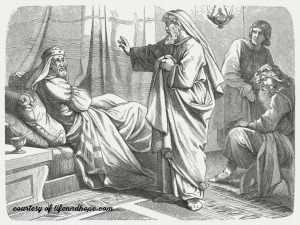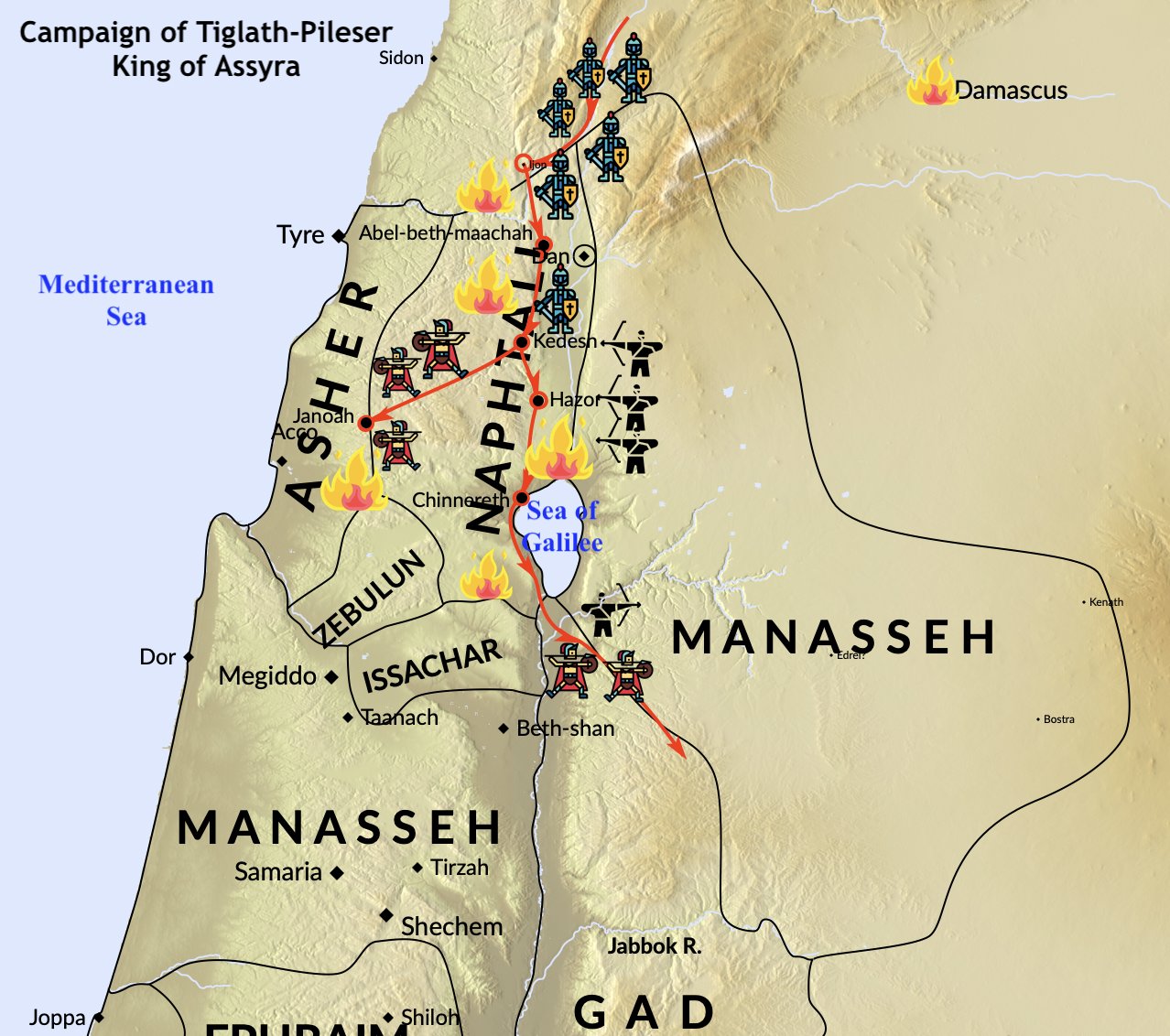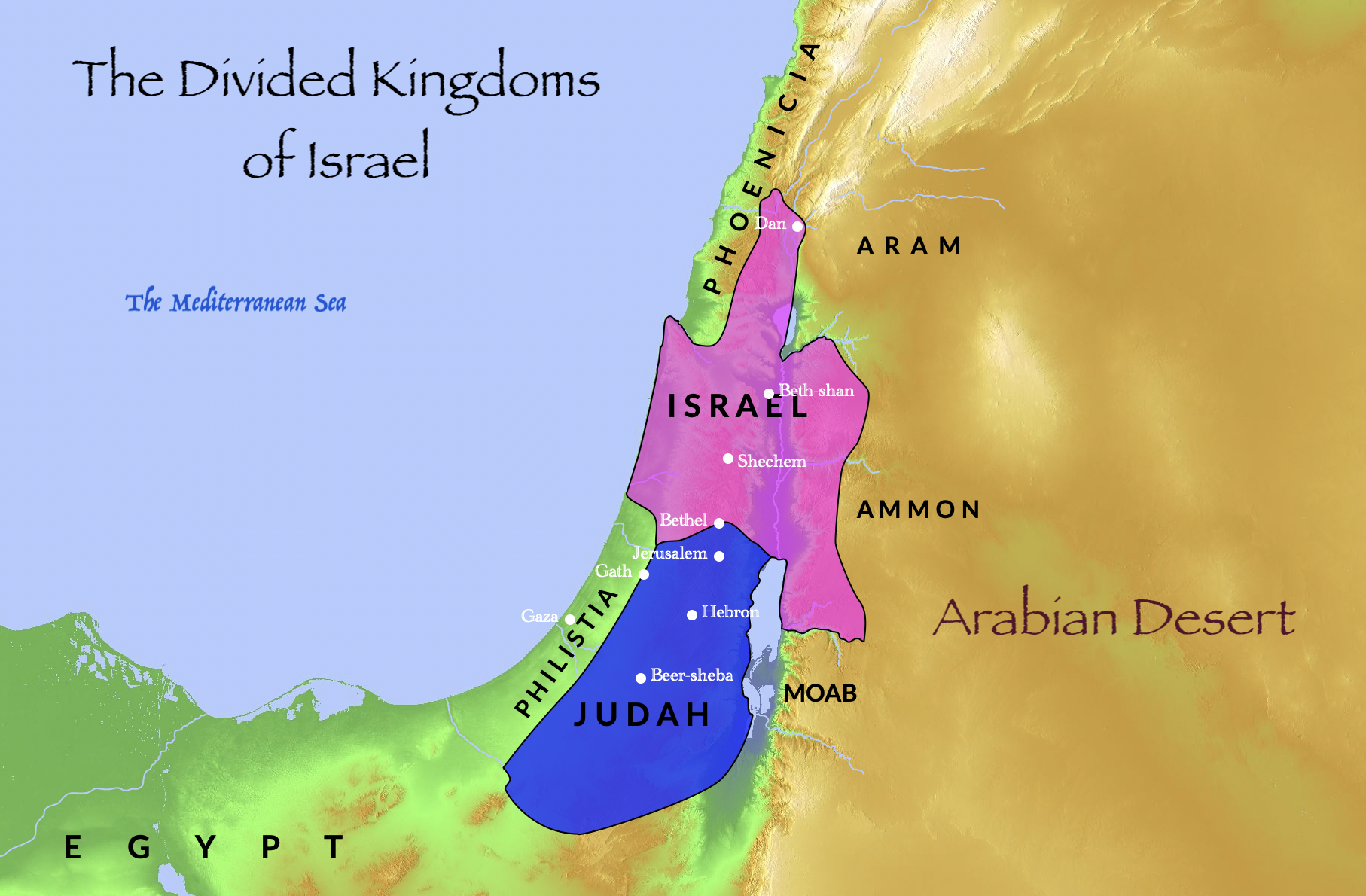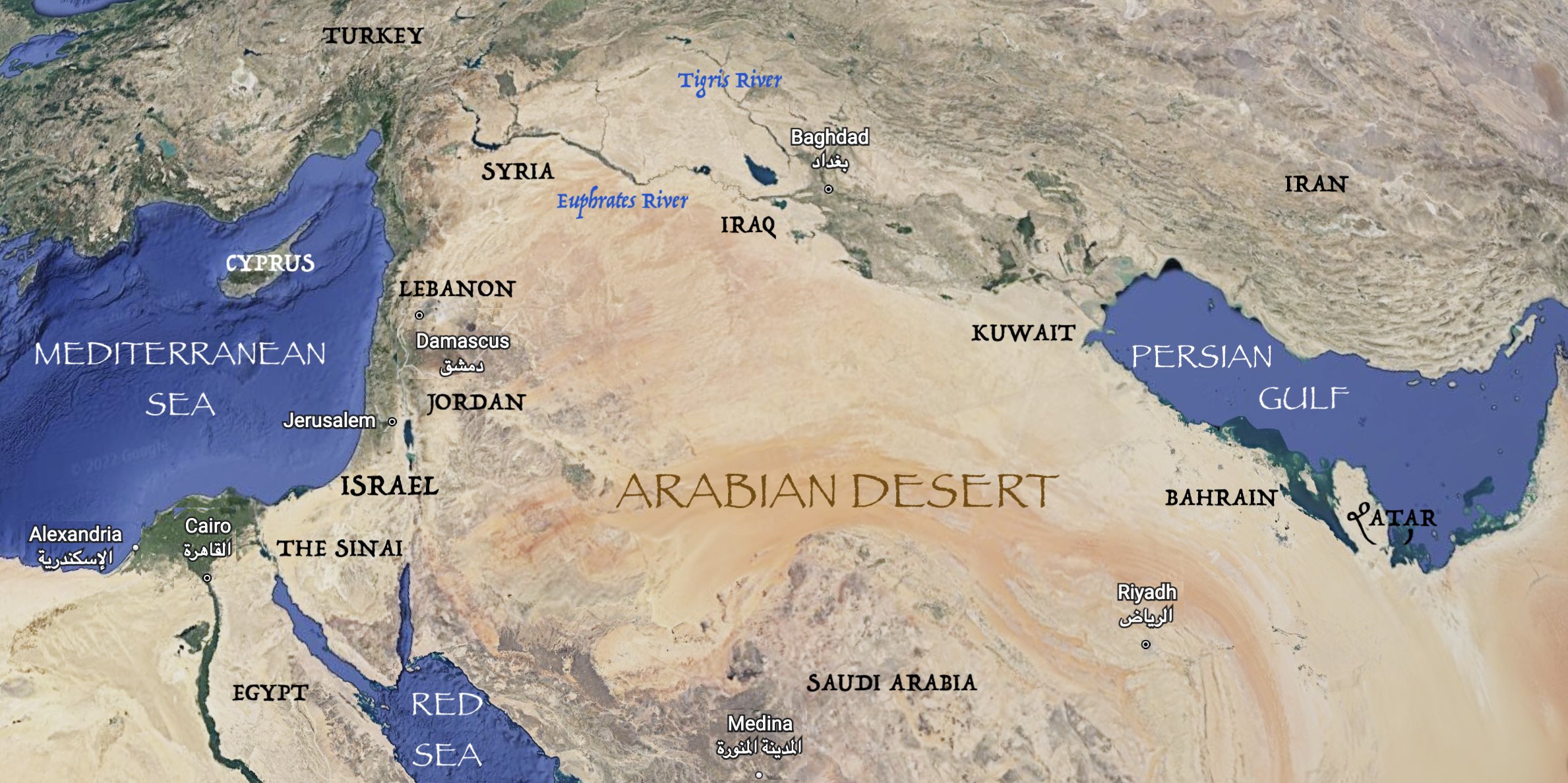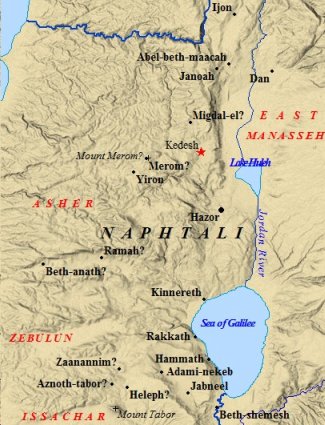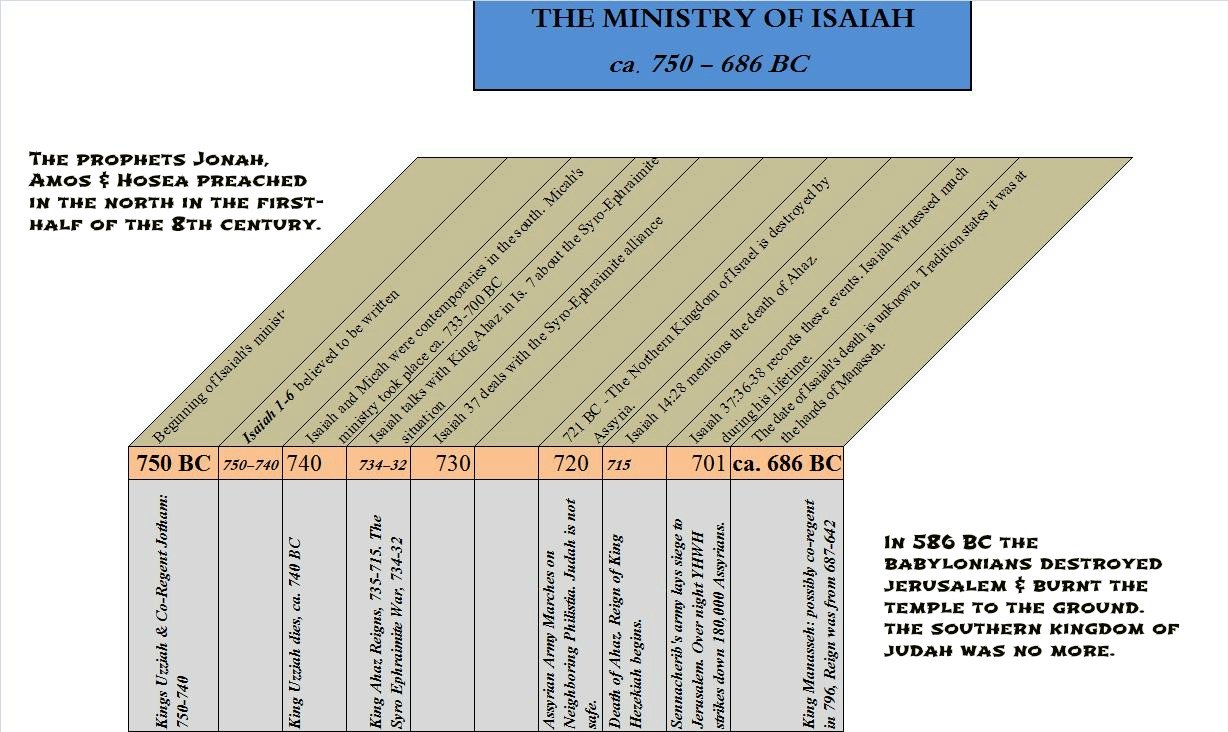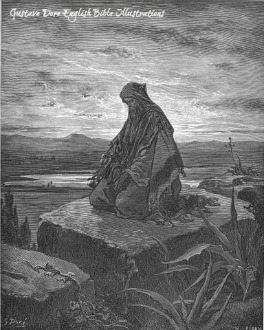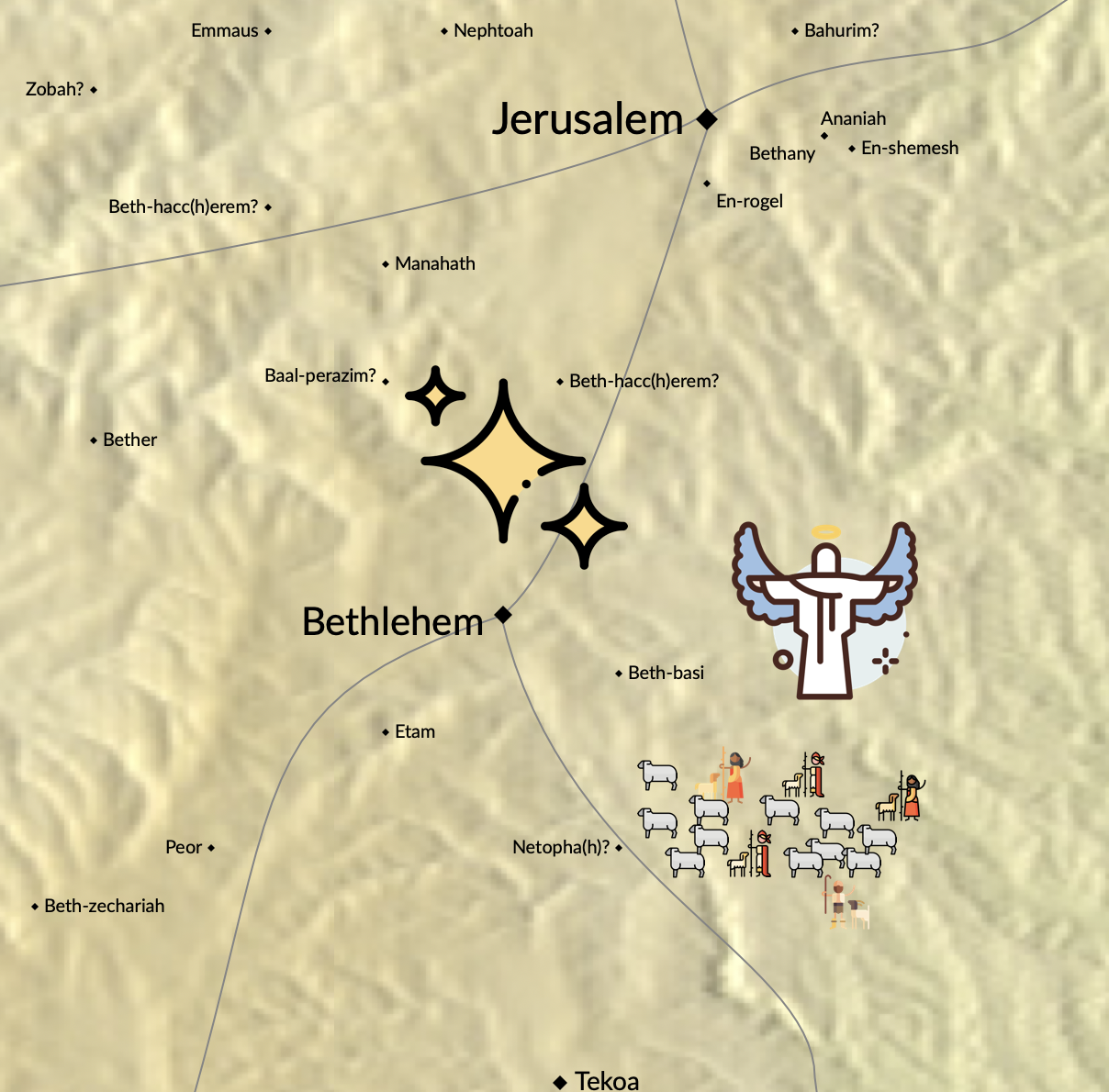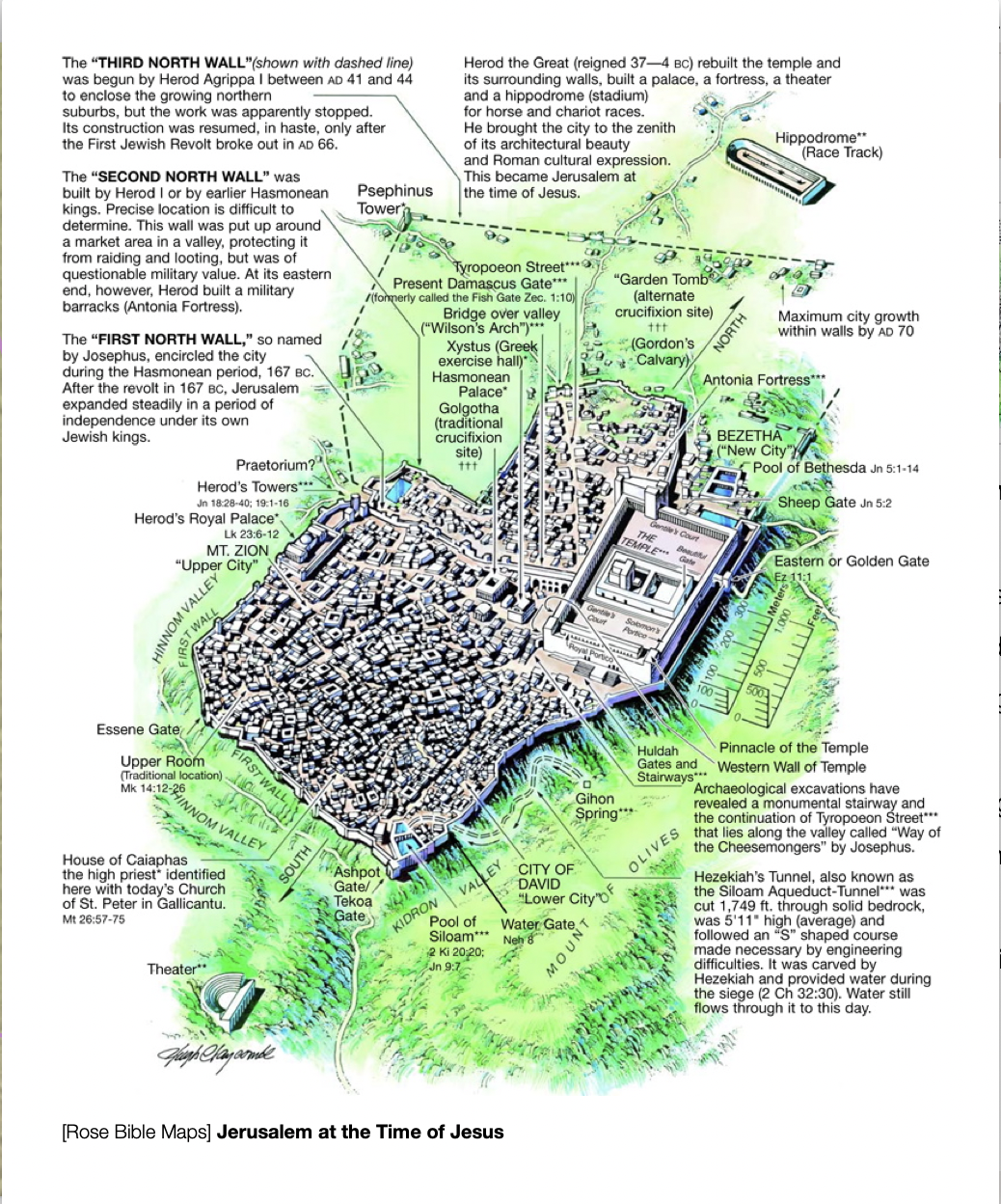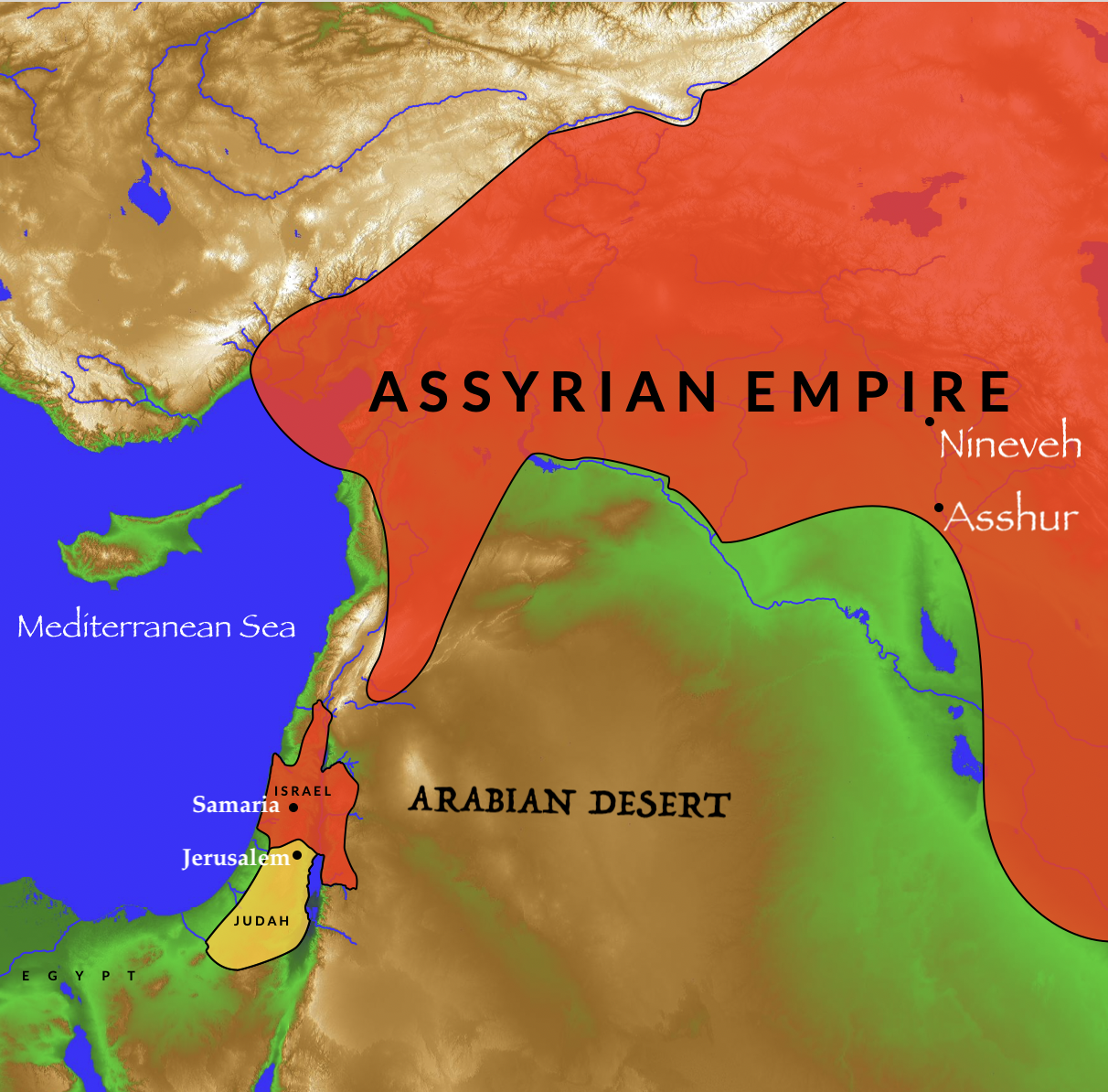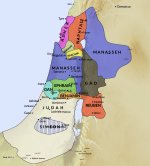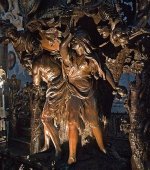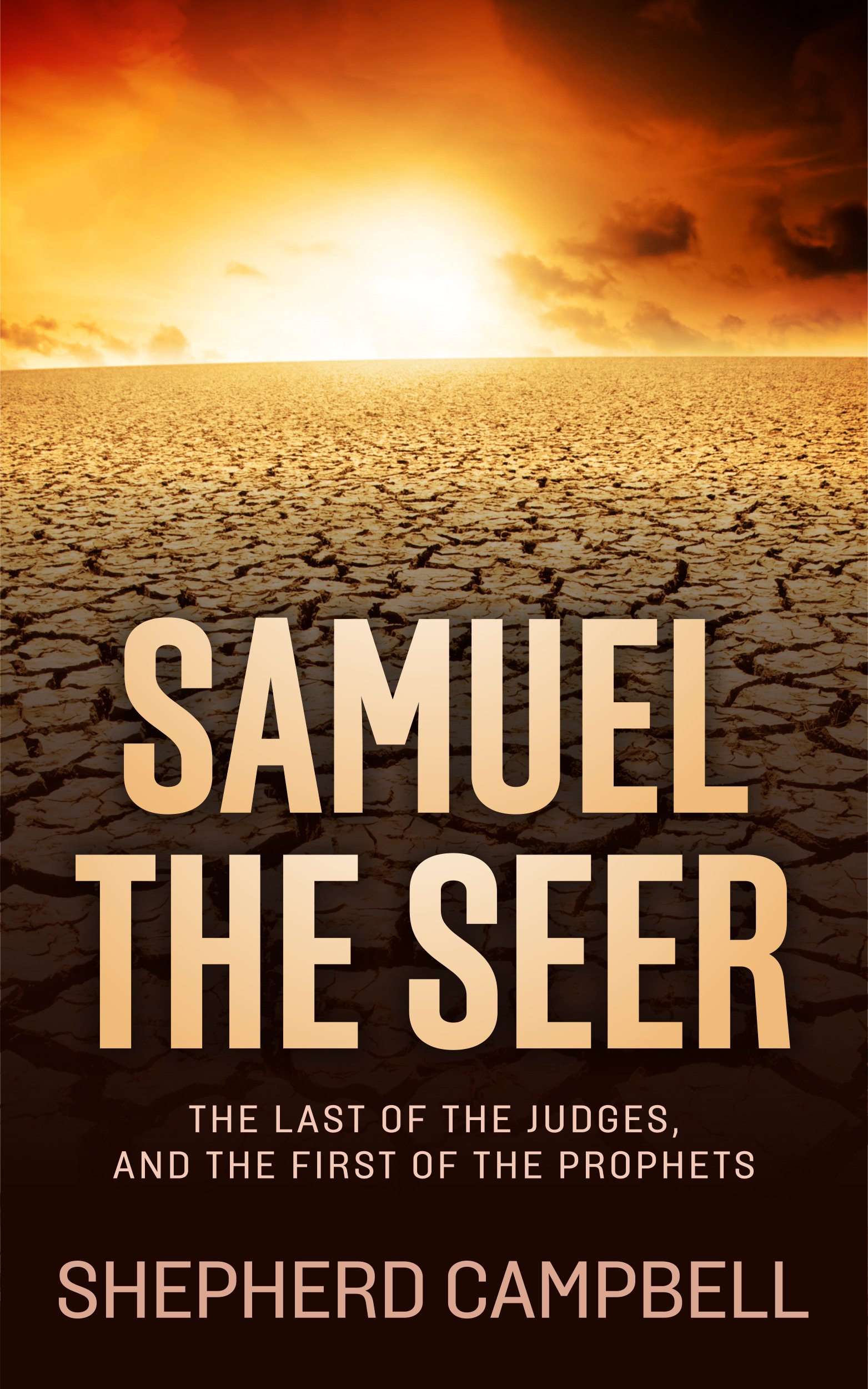- Biblical Maps
- Home Page
- History of Israel Blog
- Ancient Mesopotamia
- Map of Palestine
- Abraham
- Ancient Israel
- 12 Tribes of Israel
- Jerusalem
- The Book of Isaiah
- Palestine
- The Habiru
- Contact Us
- Bible Study Forums
- Media Page
- Visitors Sitemap
- Privacy Policy
- The History of the Old Testament
- In the Days of Noah
- The City of Jericho
VISIT OUR FACEBOOK PAGE!
ISAIAH 9
Length: Isaiah 9 is 21 verses long.
Date: ca. 733 BC. This date, however, should be taken as a general date and by no means precise. A date of 733 BC would reflect certain conditions surrounding the Syro-Ephraimite War. Smith points out that chapters 9-11, while being difficult to date precisely, do often reflect the conditions surrounding the Syro-Ephraimite War. Assyria's presence as the world's dominant force undoubtedly places the context within the 8th century BC (799-700 BC).
Structure: Chapter 9 has been called an "oracle of salvation" (Smith, p. 233). It is written, according to some scholars, as a thanksgiving hymn, with the emphasis on God's future action and not His past achievements. The fact no praise of God is mentioned in this chapter does imply an emphasis on God's future actions. Verse 1 opens with an announcement of a royal birth. Isaiah offers hope for Israel in the future Messiah - Jesus Christ in the New Testament.
Isaiah prophecies of the future reign of Jesus Christ - the One whom Christians view as Messiah. This future king offers hope for Israel. The prophet, however, also asserts Israel will remain in their current state of pride & arrogance until that time arrives, and trials will await (vs. 8-21). The Lord of Hosts will not look the other way, and will ultimately continue in His zeal.
ISAIAH 9
Click on a link to view commentary on that particular verse or verses.
vs. 6-7
ISAIAH 9:1
1 But there will be no more gloom for her who was in anguish; in earlier times He treated the land of Zebulun and the land of Naphtali with contempt, but later on He shall make it glorious, by the way of the sea, on the other side of the Jordan, Galilee of the Gentiles.
In verse one it seems the prophet Isaiah may be referencing the invasion of Tiglath - pileser III into the "land of Zebulun and the land of Naphtali" in 733 BC. Indeed for the residents of Galilee it seemed as God had treated them with contempt, as their "gloom" and "anguish" at that time involved murder, enslavement and exile.
History records when the Assyrians invaded Damascus and northern Israel, which included the tribal territories of Zebulun and Naphtali (hence their inclusion inverse 1), the Assyrian King incorporated these lands into his empire. The native population was exiled and the region became an Assyrian province."
Thus it was the region of Galilee - including the tribal territories of Zebulun and Naphtalie - that should be identified in verse on as "her who was in anguish" . God treated the inhabitants of this region with "contempt" through their death, enslavement and exile into Assyrian lands. II Kings 15:29 states Tiglath-pileser "carried them captive to Assyria".
Rewind to 744 BC and the Northern Kingdom of Israel stood on the brink of ruin. The death of Jeroboam II in 747 BC triggered a series of catastrophic evens, as the people and kingdom of Israel fell under anarchy. Civil wars, assassinations and rebellion ran rampant. From 747 - 723 BC there 6 kings of Israel - an average reign of 4 years.
The Northern Kingdom repeatedly ignored God's warnings and His prophets, and in 737 BC Aram-Damascus and Philistia attacked Israel - severely weakening her. Israel was not a large kingdom by any stretch and the combined forces of two nations were too much. Like sharks to blood, Assyria smelled weakness and in 735 BC launched a major offensive campaign into the Levant.
Tiglath-Pileser first conquered Damascus on his way into the northern heartland
of Israel, the Galilee - which included the tribal lands of Zebulun and
Naphtali. Samaria, which included the tribal land of Ephraim, was spared
by the Assyrian machine. Samaria's demise was only a matter of time.
Isaiah 9:1 speaks of this invasion in mentioning the tribal territories of Zebulun and Naphtali by name. Isaiah had witnessed these events, and in the south the people of Judah were certainly on edge. At the time of writing Isaiah 9 the land of Zebulun and Naphtali was an Assyrian province.
To put this into context, the land of Zebulun and Naphtali was a British province at the beginning of the twentieth century AD. It was only after World War II that these lands were once again sovereign. In 1948 the sovereign nation of Israel was formed once again. The tribal territory west of the Jordan River was once again under Jewish control. However, the land of Naphtali and Zebulun remain mired in conflict to this very day.
Once again we encounter an important connection from Isaiah to the New Testament, specifically Jesus Christ. Matthew 4:12-17 is the fulfillment of this prophecy in Isaiah 9:1-2.
Matthew 4:12-14
"12 Now when Jesus heard that John had been taken into custody, He withdrew into Galilee; 13 and leaving Nazareth, He came and settled in Capernaum, which is by the sea, in the region of Zebulun and Naphtali. 14 This was to fulfill what was spoken through Isaiah the prophet;"
II Kings 15:29 & II Chronicles 16:4 highlight the volatile history of Naphtali's land. They were under constant threat from both internal and external enemies. The Galilee in general was a violent region - a mixing of Gentile and Jewish influences that oftentimes produced explosive results.
Thus Isaiah's prophecy concerning this region in the second half of verse one and all of verse two is profoundly important. This prophecy reads;
Isaiah 9:1b-2
" 1b ...but later on He shall make it glorious, by the way of the sea, on the other side of the Jordan, Galilee of the Gentiles. 2 The people who walk in darkness will see a great light; Those who live in a dark land, the light will shine on them."
Notice the descriptive words used for Naphtali in Isaiah 9:1 - "darkness", "dark land', "contempt". This is a miserable land, a land of extreme sadness and despair, of gloom for life and the future - a land of dread and pessimism. Yet it would see a "great light", recognized in the life and person of Jesus Christ. This land is where Jesus took root, where His ministry was formed, His core group selected and handpicked from its little, poor and insignificant fishing villages.
Jesus was proof God had not turned His back on His people of these lands. A region marred in disobedience and conflict with catastrophic consequences would be redeemed by playing host to God's Son on Earth. Nothing about God is random.
His choice of Galilee as Jesus' home is nothing short of poetic justice - an example of His divine forgiveness and desire to redeem ALL of His people, Jew and Gentile alike. Isaiah offered the same divine forgiveness and redemption to the people of his day through these words of God.
ISAIAH 9:6-7
"6 For a child will be born to us, a son will be given to us; and the government will rest on His shoulders; and His name will be called Wonderful Counselor, Mighty God, Eternal Father, Prince of Peace. 7 There will be no end to the increase of His government or of peace. On the throne of David and over his kingdom, to establish it and to uphold it with justice and righteousness from then on and forevermore. The zeal of the Lord of hosts will accomplish this."
How do we know this prophecy was meant for Jesus? Verses 6-7 reveal that the future ruler of the world will come from Israel. Isaiah 9:3-5 describe the blessings those who live in Zebulun and Naphtali will experience. Verse 3 says the nation "shall multiply", and "Thou shalt increase their gladness". Even though Assyria has exiled the people and burnt the land - One is coming who will "break the yoke of their burden and the staff on their shoulders" (v. 4).
Isaiah emphasizes HOPE still exists because God IS aware of Israel's plight - and He is sending help. Verses 6-7 reveal the reason for this hope and the Deliverer of Israel. This Deliverer is the Messiah - for "the government will rest on His shoulders".
It is important to take a close look at this verse and the identity of the One being discussed. The Septuagint (LXX) is a good place to start as it varies slightly from the NASB version listed above.
Isaiah 9:6 (LXX)
"For a child is born to us, and a son is given to us, whose government is upon his shoulder: and his name is called the Messenger of great counsel: for I will bring peace upon the princes, and health to him."
Thus based on this version we know the One who is coming is a messenger, sent to Earth to deliver a message to mankind. His message is of great importance to both Israel and mankind in general. Peace, too, will accompany this individual. The NASB lists four names this individual will possess.
Hebrew Names of the "child" in v. 6
1. Wonderful Counselor
2. Mighty God - evidence Isaiah believed the Messiah to be God
3. Eternal Father - Eternal in the sense of duration, meaning, perpetuity of existence; eternity; everlasting, old, without end
4. Prince of Peace
Further
evidence of who this "child" is can be taken from other passages in Isaiah and throughout the Bible. Below is a close
look at Isaiah 9:6-7.
I. "For a child will be born to us"
The Bible says this child will be the future leader of the nation of Israel. He will be a king to God's people and will establish His kingdom over all the nations of the earth. A number of verses give clues to His identity.
Isaiah 7:14 - This verse also speaks of a child being born to Israel during the life of Isaiah. Though this child is likely different from the one mentioned here in verse 6 - progressive revelation later revealed God was referencing the future birth of Christ as well, at least according to Matthew who uses this verse as evidence of Jesus' divinity and His birth as being foretold by the prophets.
Isaiah 11:1 - Isaiah 11 is titled, Righteous Reign of the Branch, again referencing the future reign of Messiah over both Israel and the World. This individual in Isaiah 11 is the same as the one being discussed in Isaiah 9 - evidenced by the fact both will judge God's people, both are anointed by the Spirit, and just as the child in Isaiah 9, "the nations will resort to the root of Jesse" (11:10) - an implication of worldwide rule and government. Isaiah 11:1 calls this future Messiah a "stem of Jesse". In other words, this individual will be from the House of David, or, descended from King David's own lineage. This, too, was fulfilled by Jesus through His earthly father, Joseph. Joseph was born in Bethlehem, the City of David, as a descendant of David's. Thus, Jesus was born in the House of David as well, fulfilling this piece of Scripture.
Isaiah 53:2 - This verse depicts the lowly origins of Messiah by claiming "He has no stately form or majesty". This figure will not have "appearance that we should be attracted to Him". Once again we find fulfillment of this criteria in the personage of Jesus Christ. Jesus came from the Galilee, more specifically from Nazareth in the Galilee. Nazareth was a small, insignificant, backwater village. It carried no special importance. In fact, Nathaniel, responding to Phillip about Jesus' appearance, understood Nazareth's insignificance when he said; 'Can any good thing come out of Nazareth?'
Christ came from a poor family in a poor village with nothing special about either Him, His family, or His hometown. Nothing about Jesus would've made you step back and take notice - no special heritage or inheritance, no special education, no special family member or friend, no special connections growing up, no special job or career path, no special achievements, no political position or voice of power and influence. Nor are we are told of any physical quality that would've made Him stand out - like Saul's height, David's "ruddy" looks, or Samson's strength. There was absolutely nothing earthly special about Jesus Christ.
Luke 2:11
Here "an angel of the Lord" appears to the shepherds in the fields of Canaan declaring;
"today, in the City of David, there has been born for you a Savior".
This announcement was in reference to the birth of Christ, which as Scripture reveals took place in rugged and simple conditions. According to the Bible there was no room for Joseph and Mary to give birth to their child inside an inn. Thus, they were in less than ideal conditions to give birth. However, this child was no ordinary child, as evidenced by the announcement of the angel to the shepherds in the field. This child was the Redeemer, the Messiah of the Old Testament prophecies, sent by God to heal and redeem mankind.
After the angel of the Lord revealed the identity of this child to the shepherds, "there appeared with the angel a multitude of the heavenly host praising God". Clearly this was no ordinary child, and the message He was sent to deliver must be of the utmost importance. This child was a Savior, one who would rescue Israel from foreign oppression. Though the shepherds were not aware of Christ's function at the time, the appearance of angels provided them with evidence this child was critically important to the nation of Israel. As such, in verse 15 the shepherds were anxious to find this child in Bethlehem, who would fulfill this prophecy from Isaiah 9;
"Let us go straight to Bethlehem then, and see this thing that has happened which the Lord has made known to us."
II. "A Son will be given to us"
What stands out most here is the phrase, "given to us". This indicates a gift or a donation - something that was given but not due to merit. In other words, God is giving mankind a gift which mankind has not earned. This notion in Isaiah 9 is confirmed in the NT with the Christian's foundational verse - John 3:16.
"For God so loved the world that He gave His only begotten Son, that whosoever believes in Him shall not perish, but have eternal life."
Notice God GAVE us His son. This was not something mankind earned. The Hebrew word used in this instance also indicates such. Neetahn is the Hebrew word used in Isaiah 9:6-7 and it literally translates as "donation". In other words, God donated His son to mankind in order that His son may save and redeem mankind.
Isaiah takes it one step further and claims the government will one day rest on this child's shoulders. Jesus Christ preached just that in the New Testament when He referred to the kingdom of God. It was this verse in Isaiah 9 which set the expectations on the people's part for what Jesus would do.
To many in 1st century AD Jerusalem Jesus was the anticipated Messiah. And part of what the Messiah was to do Isaiah wrote about in Isaiah 9:7 - establish His kingdom in Jerusalem. They anticipated an earthly government in which Jesus as Messiah would overthrow the Romans - and then establish Israel as the chief power in the world, with Jesus as the head of the empire.
Luke 17:20 - "Now having been questioned by the Pharisees as to when the kingdom of God was coming, He answered them and said, 'The Kingdom of God is not coming with signs to be observed.' "
Mark 1:15 - "The time is fulfilled, and the kingdom of God is at hand; repent and believe in the gospel."
Romans 14:17 - "for the kingdom of God is not eating and drinking, but righteousness and peace and joy in the Holy Spirit."
Matthew 21:43 - "Therefore I say to you, the kingdom of God will be taken away from you and given to a people, producing the fruit of it."
The child of Isaiah 9:7 was fulfilled in the person of Jesus Christ; and the government on his shoulders is the kingdom of God which Christ spoke frequently about, but the people so grossly misinterpreted the nature of His kingdom.
This verse had far reaching consequences, which were only recognized in part during the life of Jesus, and which will be fully recognized at the time of His Second Coming.
III. "And the government will rest on His shoulders"
It is important to keep in mind that Isaiah wrote these words for the people living in Judah around 730 BC. These words would eventually come to the attention of many more people as a prophecy concerning the birth of Jesus Christ. But, in the historical context in which this verse was written, Isaiah may intended it for immediate consumption by his local audience in Jerusalem and Judah, with no thought or knowledge to the future Messianic implications of his words.
Of course it is quite possible God inspired this verse knowing Messiah's role when He would come, even though Isaiah may have had no idea of the future significance of his message. This verse clearly took on new significance with Matthew 28:18, which records the words of Jesus Himself.
"And Jesus came up and spoke to them, saying, 'All authority has been given to Me in heaven and on earth.' "
Jesus would've realized these words were in fulfillment of Isaiah 9:6; and He realized many in His audience would as well. This was a very provocative statement to make, for in essence Jesus was saying He was the Messiah and had the same authority as God.
I Corinthians 15:25 says Christ will reign until He has abolished all His enemies. Then He will "deliver up the kingdom to the God and Father". Thus the government will rest on Jesus' shoulders, further NT evidence the earliest Christians associated Jesus with many of these Old Testament prophecies.
IV. "His name will be called Wonderful Counselor"
This is the first of four names that are given to this future son. Isaiah 28:29offers some relevant insight into this verse in Isaiah 9. In verse 29 the Bible says;
"...the Lord of hosts, who has made His counsel wonderful and His wisdom great"
This passage clearly relates God, identified as the Lord of hosts, with wonderful counsel, the exact words of the name "Wonderful Counselor" in Isaiah 9:6.
This is further evidence Isaiah believed this promised Deliverer to be none other than God Himself - at least in some form. By using this appellation Isaiah is saying the future David Messianic King will possess extraordinary wisdom, beyond what His appearance might suggest.
An episode from the NT may be identified with the idea of Jesus possessing extraordinary wisdom and counsel. The story can be found Luke 2. In this story a 12 year old Jesus becomes separated from his parents on their journey back to Nazareth from Jerusalem.
After a desperate search, Joseph and Mary find young Jesus in the Temple, sitting among the priests, talking and discussing the Scriptures with them. The Bible says in Luke 2:47;
"And all who heard Him were amazed at His understanding and His answers."
Later, in verse 52 the Bible says;
"And Jesus kept increasing in wisdom and stature, and in favor with God and men."
Perhaps Luke had this verse in Isaiah 9 in mind when he included this story of Jesus in his account. A Jewish audience would likely understand the significance of divine wisdom and counsel as being from God and characteristic of the future Messiah.
V. "Mighty God"
This was a common description of God in the Old Testament. The verses below give examples of similar descriptions and names of God found throughout the Bible.
Deuteronomy 10:17- "The Lord your God is the God of gods and the Lord of lords, the great, the mighty, and the awesome God..."
Psalms 24:8- "Who is the King of Glory? The Lord strong and mighty, the Lord mighty in battle."
Nehemiah 9:32 - "Now, therefore, our God, the great, the mighty, and the awesome God..."
Isaiah 10:21 - "A remnant will return...to the Mighty God."
Isaiah was reassuring the people that God was still the same Mighty God of old. And Isaiah stressed God was coming, though in the form of a child, a son more specifically.
This would've likely seemed a crazy statement to many of Isaiah's listeners. And while it is true the application of this title to a person does not signify divinity, the use of the same name in Isaiah 10:21 above, according to Smith, "demands that this son be identified with God in a very close manner" (Smith, p. 241).
P.
Wegner has an interesting take on these four names; suggesting that
instead there are only two dual-names given in the original Hebrew. He combines the above two names and forms one, dual name of God.
Thus his interpretation of the name Wonder Counselor is; "wonderful planner is the mighty God". Though this interpretation has not been widely accepted, it is in fact an accurate statement about the nature of God, and an interesting and different translation of Isaiah 9.
VI. "Eternal Father"
To the Christian the NT makes it clear Jesus became their Redeemer (Gal. 3:13; 4:5; Lk. 24:21; Tit. 2:14; I Pet. 1:18). He redeemed mankind from their sins and reconciled us with God. Redemtion was a very Old Testament notion, as it was the reason for the establishment of the sacrificial system.
Isaiah uses the term in Isaiah 63:16 when he refers to God as "our Father, our Redeemer from old is Thy name". In a post resurrection appearance Jesus explains the Scriptures to unsuspecting men in Luke 24. In Luke 24:27 the Apostle makes an interesting statement.
"Then beginning with Moses and with all the prophets, He explained to them the things concerning Himself in all the Scriptures."
This makes it clear Jesus saw Himself as the Messiah. He was one with God the Father, and revealed these things to the men. Without a doubt Jesus is equated with God the Father as an equal, and as one and the same. In this respect Jesus fulfilled the title in Isaiah 9 as Eternal Father - for He was one with the Creator, the Alpha and the Omega. This is the mystery of the Trinity.
Galatians 4:5 connects the theme of Redeemer from the OT to the NT.
"so that He mighty redeem those who were under the Law, that we might receive the adoption as sons"
The connections made between this passage in Isaiah and the New Testament ministry of Jesus leave little doubt He was the Son Isaiah referred to - in the belief of Christians. As Jesus explained "Himself in all the Scriptures" after His resurrection to these fortunate, yet unsuspecting men, there is no doubt He spent much time explaining the book of Isaiah, and likely dwelt on this very verse!
It must be noted, however, that it is quite possible Isaiah's audience was very puzzled by his words. They did not have the benefit of thousands of years of history from which to view and interpret these words.
In their minds they heard Isaiah say a son was going to be born that would one day become the Davidic Messiah of Israel. This son would be very close, in fact equal with God Himself. To the Jews of 8th century BC Jerusalem this may have bordered on blasphemous, and some certainly derided Isaiah writing him off as a kook.
VII. "Prince of Peace"
The 8th century BC was a very violent time in world history. It witnessed the rise of the Assyrian Empire, perhaps the world's most blood thirsty empire ever. The Assyrian army was a well oiled and efficient machine of death. They were known for their cruel executions and merciless slaughtering of entire cities.
Israel was caught in the middle of the Assyrian struggle for world domination. In fact, Assyria is the catalyst for much of the book of Isaiah. Many of the prophecies deal with situations which arise because of Assyria.
Both the Northern Kingdom of Israel and the Southern Kingdom of Judah were no match for the mighty Assyrian empire, and spent much of their time trying to avoid subjugation.
Yet peace was something Yahweh offered those who trusted and believed in Him. Isaiah makes this point very clear in his writings.
Isaiah 26:3 - "The steadfast in mind Thou will keep in perfect peace, because he trusts in Thee."
Isaiah 26:12 - "Lord, Thou will establish peace for us"
Isaiah 54:10 - "For the mountains may be removed and the hills may shake, but My lovingkindness will not be removed from you, and My covenant of peace will not be shaken', says the Lord who has compassion on you."
Isaiah 66:12 - "For thus says the Lord, 'Behold I extend peace to her like a river..."
Israel and Judah longed for peace in the 8th century BC. Assyria was ravaging the land and threatening both countries very existence. The North would eventually fall, leaving only the Southern Kingdom of Judah. Peace seemed like a distant and hopeless dream.
Even to this day Israel does not have peace - thus this portion of the Savior's name awaits fulfillment. Some 2800 years after Isaiah the nation of Israel still struggles for its existence. Yet one day peace will reign in the land. How can one be sure of this?
Isaiah 9:7 reveals the reason.
Isaiah 9 Resource
Isaiah 9:6 Commentary - "For to us a child is born..."
Recent Articles
-
The History of Ancient Israel
Dec 25, 23 02:16 PM
An easy to read history of ancient Israel from Old Testament times to today. -
The Ancient City of Jericho
Dec 18, 23 11:21 PM
The city of Jericho is one of the most ancient cities on earth. The city played a crucial role in a number of Bible stories. -
Story of Cain and Abel
Dec 17, 23 01:20 PM
The story of Cain and Abel is a tragic story of jealousy, rage and fratricide. It is the first murder in recorded history. -
The Twelve Tribes of Israel
Dec 17, 23 12:13 AM
The twelve tribes of Israel originated with the twelve sons of Jacob. -
The Tribe of Gad
Dec 16, 23 11:54 PM
The Tribe of Gad was a fierce tribe that participated in many of Israel's battles. They settled land east of the Jordan River. -
Life of Adam and Eve
Dec 11, 23 10:50 PM
The life of Adam and Eve was a blessed life meant to be lived eternally in Paradise. They lost Paradise, and ever since man has been looking for Eden.
SAMUEL the SEER
Now Available in Print & eBook on Amazon!!
POPULAR TOPICS
Learn more about these popular topics below. The Bible is full of fascinating stories, characters and mysteries!
BIBLE MAPS
Explore the land of the Old Testament! View these maps of the Bible.
